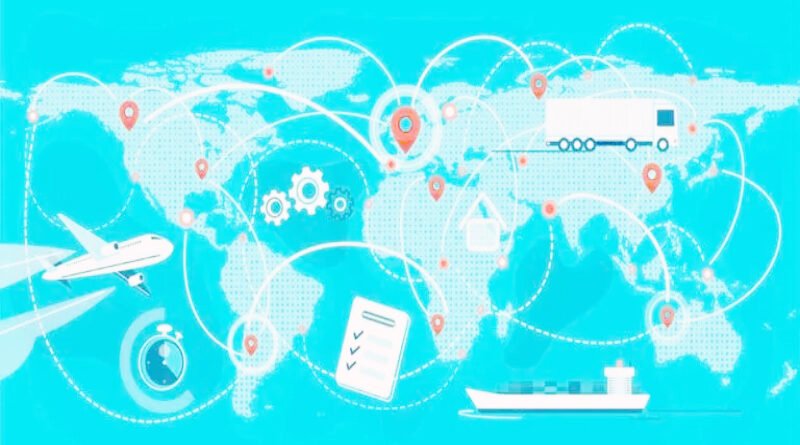How SaaS is Enhancing the Logistics and Transportation Industry
The logistics and transportation industry is the backbone of global commerce, ensuring that goods move efficiently from point A to point B. This sector is constantly evolving, driven by technological advancements and increasing demands for faster, more reliable services. One of the most significant technological shifts in recent years has been the adoption of SaaS (Software as a Service) solutions, which are transforming how logistics and transportation companies operate.
Engaging skilled SaaS copywriters can help these companies articulate the benefits of SaaS platforms to their clients and stakeholders. A well-crafted message can demonstrate how SaaS solutions streamline operations, improve efficiency, and enhance overall service quality.
One of the primary ways SaaS is revolutionizing the logistics and transportation industry is through enhanced fleet management. Traditional fleet management methods often rely on manual processes and outdated software, leading to inefficiencies and higher costs. SaaS platforms offer real-time tracking and analytics, providing a comprehensive overview of fleet operations. Companies can monitor vehicle locations, track maintenance schedules, and analyze driver performance, all from a single interface. This level of visibility helps in reducing fuel consumption, preventing breakdowns, and ensuring timely deliveries.
Inventory management is another critical area where SaaS solutions make a significant impact. Managing inventory across multiple locations can be challenging, with risks of overstocking or stockouts. SaaS platforms provide real-time inventory tracking and automated reordering processes, ensuring optimal stock levels at all times. These systems integrate seamlessly with warehouse management systems (WMS) and enterprise resource planning (ERP) software, providing a unified view of inventory status. This integration helps logistics companies reduce carrying costs, avoid stockouts, and improve order fulfillment rates.
SaaS solutions also enhance route planning and optimization, a crucial aspect of logistics operations. Efficient route planning can significantly reduce delivery times and fuel consumption. SaaS platforms use advanced algorithms and real-time data to determine the most efficient routes for deliveries. These systems consider factors such as traffic conditions, delivery windows, and vehicle capacities to optimize routes. By minimizing travel distances and avoiding congestion, companies can reduce operational costs and improve customer satisfaction with timely deliveries.
Another area where SaaS is making a difference is in regulatory compliance and documentation. The logistics and transportation industry is subject to various regulations, including safety standards, environmental regulations, and customs requirements. Keeping track of compliance can be complex and time-consuming. SaaS platforms automate compliance management by tracking regulatory changes, maintaining documentation, and generating necessary reports. This automation ensures that companies remain compliant with minimal effort, reducing the risk of fines and operational disruptions.
For logistics companies, customer service is paramount. SaaS solutions provide tools that enhance communication and transparency with clients. Customers can access real-time updates on their shipments, track deliveries, and receive notifications about any delays. These platforms often include customer portals where clients can manage their orders, view invoices, and communicate with service providers. Improved communication and transparency lead to higher customer satisfaction and stronger client relationships.
Data analytics is another powerful feature of SaaS platforms that benefits the logistics and transportation industry. These solutions collect vast amounts of data from various sources, providing insights into operational performance, customer behavior, and market trends. Companies can use this data to make informed decisions, identify areas for improvement, and develop strategic initiatives. For example, data analytics can reveal patterns in delivery delays, allowing companies to address underlying issues and improve service reliability.
For logistics and transportation companies looking to leverage the full potential of SaaS solutions, working with a SaaS copywriter is crucial. A SaaS copywriter can create compelling content that highlights the specific benefits of these platforms, tailored to the logistics sector. This not only helps in marketing these technologies effectively but also educates potential clients about how SaaS can transform their operations and enhance service quality.
In conclusion, SaaS is significantly enhancing the logistics and transportation industry by improving fleet management, optimizing inventory, streamlining route planning, ensuring regulatory compliance, and enhancing customer service. These platforms offer comprehensive tools that drive efficiency, reduce costs, and improve overall service quality. Engaging SaaS copywriters can help logistics companies communicate the advantages of these solutions effectively, driving adoption and success in a competitive market. By embracing SaaS, logistics and transportation companies can navigate the complexities of the industry and deliver exceptional services to their clients.
Also visit Digital Global Times for more quality informative content.

